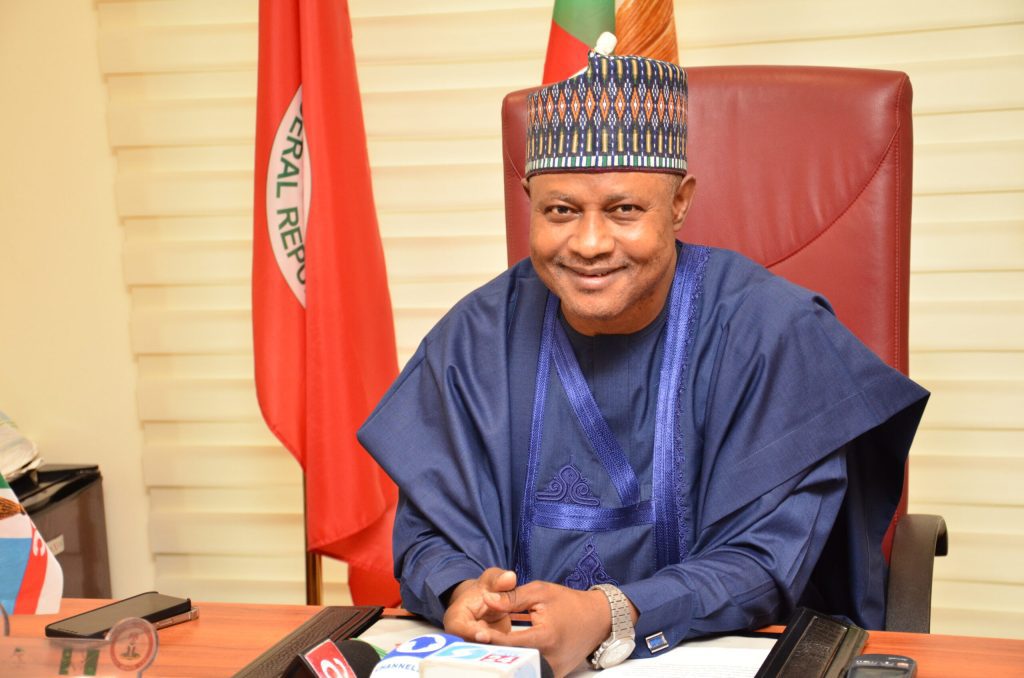The Socio-Economic Rights and Accountability Project has given Uba Sani, Nyesom Wike, and 35 other state governors a one-week deadline to provide details of the loans acquired by their states and the FCT, including the loan agreements and spending details.
SERAP also asked for the specifics and locations of projects financed with the loans, totaling N5.9 trillion and $4.6 billion.
This information was revealed in a statement signed by Kolawole Oluwadare, the organization's Deputy Director, and shared with PUNCH Online on Sunday.
SERAP encouraged the state governors and the FCT minister to widely publicize the requests, to keep Nigerians informed about how their states' loans were utilized and to hold public officials accountable for their management of public funds.
SERAP additionally advised them to promptly involve the ICPC and EFCC in scrutinizing the expenditure of both domestic and external loans acquired by their respective states and the FCT.
The organization's request followed Sani's declaration on Saturday regarding the significant debt inherited from Nasir El-Rufai, on May 29, 2023. lamented Sani mentioned that the state is currently facing a shortage of funds, making it challenging to cover salaries, and revealed that his administration inherited $587m, N85bn, and 115 contract liabilities from the previous governor.
In the Freedom of Information requests dated March 30, 2024, and signed by SERAP deputy director Kolawole Oluwadare, the organization emphasized the importance of making the loan agreements and their spending details public for accountability purposes.
They also mentioned the urgency of complying with the requests within seven days, stating that SERAP will take legal action if the deadline is not met.
The FoI requests emphasized the need to publish copies of the loan agreements and spending details to ensure public officials are accountable for managing public funds.
SERAP expressed serious concerns about the alleged mismanagement of public funds, including domestic and external loans acquired by many of the country's 36 states and the FCT.
According to Nigeria’s Debt Management Office, the total public domestic debt for all 36 states and the Federal Capital Territory is N5.9 trillion, while the total public external debt is $4.6 billion.
The statement also highlighted the ongoing issue of unpaid civil servants' salaries and pensions, as well as the borrowing by several states to cover these expenses, which has led to millions of residents being deprived of essential public services like education and healthcare.
“According to reports, some states, including yours, are using public money, which may involve both local and international loans, to finance unnecessary trips, purchase luxury and bulletproof vehicles, and support politicians' extravagant lifestyles.”
The organization expressed worry that the loans obtained by your state and the FCT, both local and international, are at risk of corruption and mismanagement.
“Your government must ensure transparency and accountability in the use of any loans acquired by your state to reduce the risk of corruption and mismanagement.
“The smooth functioning of representative democracy relies on citizens' ability to examine, discuss, and contribute to government decision-making, including how the loans acquired by your state and the FCT are spent.
“To achieve this, citizens need information that helps them participate more effectively in overseeing public funds managed by their state government and the FCT.”
The organization also mentioned “a high possibility of mismanagement or diversion of funds related to loans taken by state governments, including yours. The financial records of Nigeria’s 36 states and the FCT are generally not accessible to the public.
“Your state is obligated to uphold international anti-corruption and human rights laws, which include promoting transparency and accountability in the management of public funds, preventing mismanagement or diversion of public funds, and addressing any misuse of public trust.
“Lack of transparency in the use of loans acquired by states continues to negatively affect citizens' and public interests.
“Your state cannot use the excuse that the Freedom of Information Act does not apply to refuse to provide the requested details, as your state also has legal obligations to provide the information as outlined in the Nigerian Constitution 1999 [as amended] and the African Charter on Human and Peoples’ Rights (Ratification and. Enforcement) Act.”
The Socio-Economic Rights and Accountability Project has given the Kaduna State Governor, Uba Sani; the Minister of the Federal Capital Territory, Nyesom Wike, and the other 35 state governors a one-week ultimatum to provide the loan agreements and spending details of the loans “obtained by their states and the FCT.” SERAP’s requests also included the “details and […]



